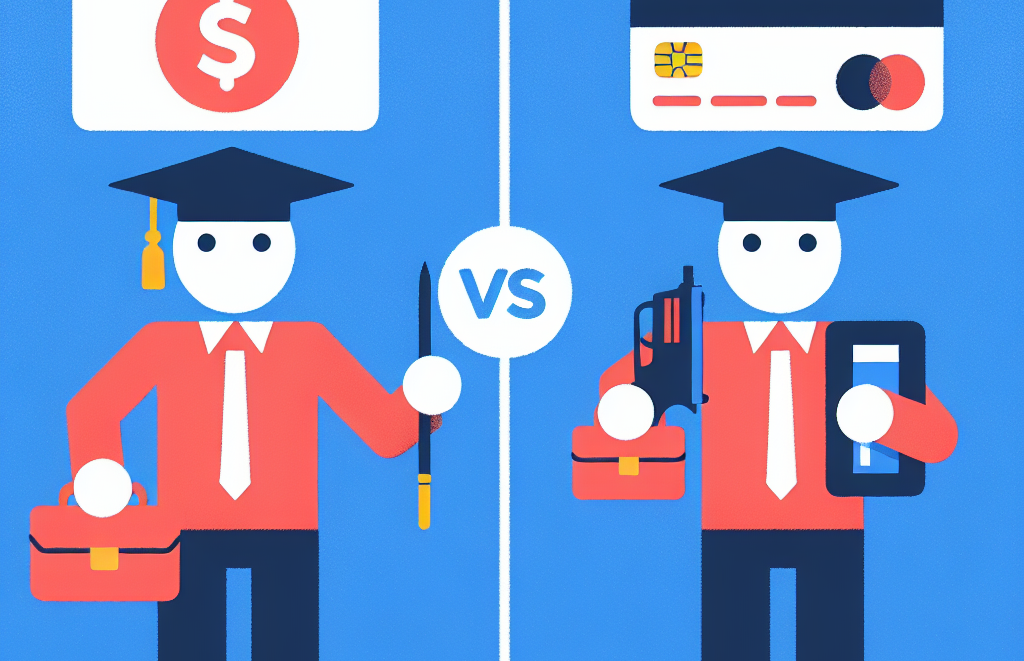
Student Loan vs Credit Card Debt: Which One’s Worse?
Understanding Credit Scores: A Beginner’s Guide to What They Are and Why They Matter
Hey there, future financial wizard! I’m Tom Bradley—your friendly neighborhood finance guy—and today, we’re tackling one of the most mysterious numbers in your life (nope, not your shoe size or how many times you’ve binge-watched your favorite series). I’m talking about your credit score.
Whether you’re just entering adulthood, applying for your first credit card, or wondering why you can’t get approved for that sweet new apartment, your credit score plays a starring role. Let’s break down what it is, how it works, and why you should care—without the stuffy jargon or confusing lingo.
So, What Exactly Is a Credit Score?
Think of your credit score as a report card for how well you handle borrowed money. It’s a three-digit number, typically ranging from 300 to 850, that helps lenders decide if they can trust you to repay a loan—or at least not ghost them.
This number is calculated based on your credit history, and the higher it is, the better. A higher credit score tells banks and lenders, “Hey, I’m responsible with my money!” And trust me, that little number can open (or close) a lot of financial doors.
The Most Common Credit Score: FICO
There are different types of credit scores, but the FICO Score is the big cheese—it’s used by 90% of top lenders. FICO scores fall into the following ranges:
- 300–579: Poor
- 580–669: Fair
- 670–739: Good
- 740–799: Very Good
- 800–850: Exceptional
Feel like you’re in the lower half of that list? Don’t worry, we’ve all been there. The first step in improving your score is understanding what affects it.
What Impacts Your Credit Score?
Your credit score isn’t just pulled from a hat—it’s based on a variety of factors. Let’s dig into the big five that make up your FICO score:
- Payment History (35%): This one’s huge. Lenders want to see that you pay your bills on time. Missing a payment or defaulting can drop your score like a rock.
- Amounts Owed (30%): Carrying debt isn’t bad, but maxing out your credit card? Yeah, that’s a red flag. Keeping your credit utilization below 30% is golden.
- Length of Credit History (15%): The longer you’ve had credit accounts, the better. Time shows reliability—just like good wine and seasoned skipping-rope champions.
- Credit Mix (10%): Having a variety of credit types (credit cards, car loans, a mortgage) shows you can handle different types of credit responsibly.
- New Credit (10%): Opening several accounts in a short period? That can ding your score. Space things out like a well-planned cheat day.
Why Should You Even Care About Your Credit Score?
I get it—money stuff can sound like something only adults worry about. Spoiler alert: you *are* an adult now (or at the very least adult-adjacent), so caring about your credit score is a must. Here’s why:
1. Better Loan and Credit Card Approvals
Want to buy a car? Rent an apartment? Apply for a loan? A good credit score makes these much easier. Lenders will trust you, and you’re more likely to get approved—and with better rates too.
2. Lower Interest Rates
Interest is like a financial penalty for borrowing money. If your score is good, banks charge you less of it. That means you save more over time. And who doesn’t love saving money for actual fun stuff?
3. More Housing & Job Opportunities
Some landlords and even employers check your credit. A bad score might make finding a new apartment or job harder. Crazy? Maybe. Real? Definitely.
Simple Habits to Build and Maintain Good Credit
Alright, let’s get practical. Building good credit isn’t impossible—and you don’t need a finance degree or unicorn-level luck. Here are some beginner-friendly tips:
- Pay bills on time: Set reminders or automate payments, even if it’s just the minimum. Late payments hurt—badly.
- Limit new accounts: Don’t open five credit cards at once to snag sign-up bonuses. Too many inquiries can ding your score.
- Use credit lightly: Stay below 30% of your credit limit if you want to keep your score shiny and clean.
- Review your credit report: Mistakes happen. You get a free copy from each bureau annually at AnnualCreditReport.com.
- Be patient: Building credit takes time, but responsible habits make a big difference in the long run.
What’s a “Thin” Credit File?
If you’re just starting out and barely have any credit history, you might hear the term “thin credit file.” It means there’s not enough info for the scoring system to confidently rate you. To beef it up, consider:
- Becoming an authorized user on a family member’s credit card—if they have good credit habits, of course.
- Applying for a secured credit card—you deposit money upfront, and it works like a regular card.
- Using credit-builder loans—these small loans are designed to help you build credit responsibly over time.
A Quick Recap Before You Go
We covered a lot—but hey, I believe in you. Here’s the TL;DR of what we just learned:
- Your credit score is a three-digit number that affects your financial life.
- It’s based on things like payment history, debt level, and length of credit history.
- Good credit = easier loan approval, lower interest rates, and more opportunities.
- To build credit: pay on time, avoid maxing out your cards, and check your reports regularly.
Learning about credit might not be as thrilling as your favorite Netflix show (unless your show is literally about finance, in which case, let’s be friends), but it’s one of the smartest investments you can make in your future. Start now, stay consistent, and remember—every expert was once a beginner.
Need help or have questions? Visit our About Us or Contact Page. I’m Tom Bradley, and I’ll catch you in the next lesson in finance the fun way!








Leave a Reply